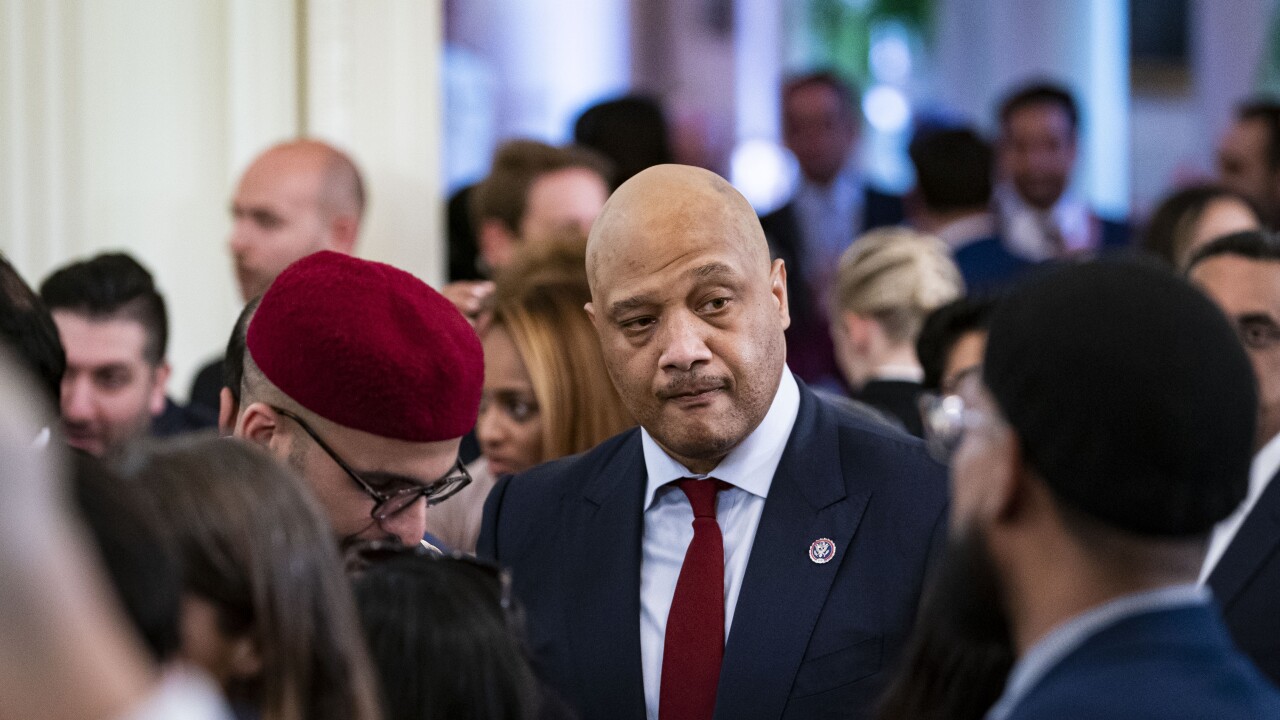LOS ANGELES — President Trump’s attempts to diminish the State Department could impact business alliances with Asian countries that are key to the California economy.
Trump's approach to State and protectionist trade policies could result in a cooling effect on trade between Asian countries and the U.S. that would hit the West Coast the hardest and California, in particular, according to a Milken Institute Global Conference panel.
“The world’s largest population center, largest share of the global economy and the key to the world’s economic, social and political future is Asia,” said Moderator Kevin Klowden, executive director of the California Center and managing economist for the Milken Institute. “And the gateway to Asia is fundamentally California.”

Cuts to the State Department would be harmful for companies trying to grow their business in other countries, because the federal government can help arrange meetings with foreign officials, said Fred Hochberg, former chair and president of the Export-Import Bank of the U.S.
“When working in Asia and much of the world, the government has a large say in purchases,” Hochberg said.
Whether it is a Boeing or a General Electric that has a lot of expertise on advancing business lines globally, or a small business, businesses benefit from having a strong State Department, he said.
“The [Trump Administration] is looking at cutting the State Department by 30%,” Hochberg said.
Those cuts aren’t likely to include the closure of embassies, but rather shrinking the local hires that help businesses make connections, he said.
The administration's budget would cut 2,300 jobs at the State Department. Any proposals would have to be approved by Congress.
Trump signed a memorandum on January 23 withdrawing from the Trans-Pacific Partnership Agreement, a trade agreement between the U.S., Australia, Brunei, Canada, Chile, Japan, Malaysia, Mexico, New Zealand, Peru, Singapore, and Vietnam. It took seven years to structure the agreement, but it had not been approved by Congress.
China is working on new trade agreements to try to fill the void left by the elimination of the TPP, panelists said. Some of those are with the U.S. – and others cut the U.S. out of the picture.
“We need those connections – not just with China, but with Singapore, Korea and Thailand,” said Klowden, “because those connections are fundamental to coming up with those key ideas that shape our world.”
The technology for Tesla's electric cars is a collaboration between Elon Musk's U.S. company and a Japanese company, Klowden said.
Panelists cautioned that it’s not just trade, but the exchange of ideas between the U.S. and other countries that have fostered the creativity that leads to the creation of new companies and new jobs. If the U.S. is perceived as isolationist, it could be cut out of the collaborative environment that has led to the creation of so many new businesses in Silicon Valley.
Being viewed as a state that welcomes immigrants has been good for California’s bottom line – and its’ ability to create new industries and new businesses, said Panelist Pradeep Khosla, chancellor of the University of California, San Diego.
“At the peak of the dot.com boom, half of the companies in Silicon Valley had one founder from India or China,” Khosla said.
“The view of the current administration is that multilateral deals [like TPP] don’t benefit the U.S., because you are trying to please too many groups at once,” Klowden said in an interview.
The result is many U.S. trading partners are trying to strike bilateral agreements with the U.S. as they are favored by the current Administration, Klowden said.
Japan and Singapore are among the countries working toward such one-on-one agreements, he said.





